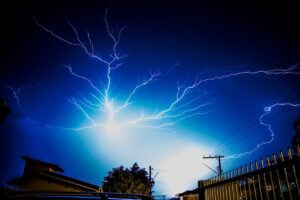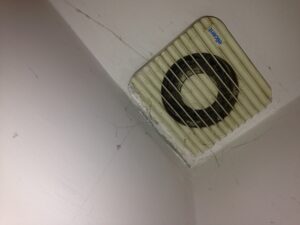Generators can be a lifesaver (quite literally). Even for just keeping yourself entertained, having one helps you know that the next few hours or days of your power outage are going to be salvaged by having a backup generator as a power source.
That said, generators can be a hazard as much as they can be a luxury. You’ve probably seen when they backfire — mostly in regard to fires, electric shock or electrocution, and carbon monoxide gas.
You can help prevent danger by having a pro install one for you. However, there are still things that you as the homeowner can do to improve your own safety, especially when it comes to running the generator once the power’s gone out.
Power Outage: How to Use a Generator Safely
Carbon monoxide poisoning
- Make sure the generator is in an area that receives ventilation. What most people don’t know is that generators can produce carbon monoxide very quickly. In fact, one generator can produce the same amount of carbon monoxide as hundreds of cars. So just having it in a closed garage for an hour is not going to work. Be sure you’re opening doors and windows regularly to help vent any accumulated dangers.
- Remember that CO fumes don’t carry a scent. That means if you start feeling dizzy or weak, go out and get some fresh air immediately.
- Keep the unit away from doors or windows, or any throughway which would allow the fumes to travel inside your home
Electrical shocks
- Dry your hands before touching the generator. This is important for you and the safety of your generator. Generators can’t be exposed to any wet conditions (including light accumulations of moisture).
- When using appliances, plug them directly into the generator. If that’s not possible, use a heavy-duty, outdoor-rated extension cord that is rated equally to the watts or amps that your appliances carry.
- Do not plug the generator directly into a wall outlet. This is called “backfeeding.” It risks electric shock or electrocution to anyone who uses the same utility transformer, including future electricians, utility workers, and your neighbors. Your best bet is to hook it up to a transfer switch (as installed by professionals).
- Shut down all appliances before turning off your generator.
- Keep children and pets away from the generator while it’s operating. This machine can get hot when it’s in operation.
Fires
- Let the generator cool down before refueling. If the engine is still hot, contact with gasoline could cause a fire. Store fuel away from the generator, too.
- Keep your generator at least 20 feet away from anything flammable.
- It’s important to read the owner’s manual for instructions on safely using a portable generator during power outages. This will contain all the info you need to use your generator safely during a power outage.
If you have any questions at all, let our service team know. We’ll get back to you shortly.
When property owners are unsure of their electrical systems and power generators, they know to call Prairie Electric. We have a large team of experts. We can fix any electrical problem you may be having.
Stay safe out there, everybody. And make sure you get in touch whenever you need us.
Updated Nov. 1, 2022.


